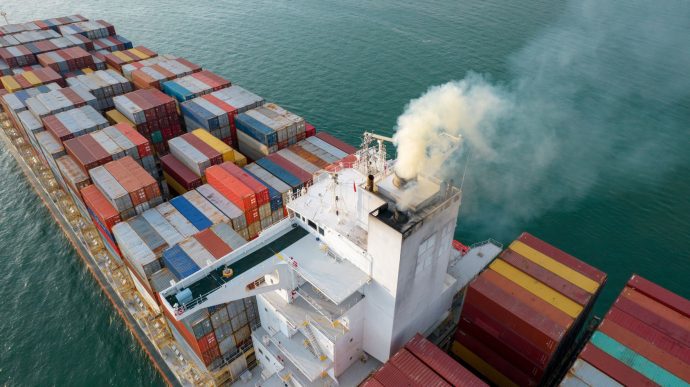The shipping industry must play its part to reduce global greenhouse gas (GHG) emissions and combat climate change. Currently, the sector is responsible for 3% of global emissions – and, without significant intervention, that number will rise.
The International Maritime Organisation’s (IMO’s) Marine Environment Protection Committee (MEPC) plays a critical role in this effort, designing rules and regulations for the industry. It has set ambitious targets to help guide the shipping sector and give players across the industry the timeframe and flexibility to draw and implement their own GHG reduction strategies.
At the most recent MEPC meeting, held this month at IMO’s London headquarters, the committee adopted a bold approach for a more ambitious reduction policy.

MEPC 80 adopted a revised strategy to reduce GHG emissions to net-zero by or around 2050, marking a significant acceleration compared to the 50% reduction by 2050 compared to 2008 levels that was agreed just five years ago. It also included indicative checkpoints for the industry:
You can read the full IMO MEPC report here:
“It is always a positive to see the shipping industry come together to collaborate on effective ways to reduce our collective impact on the environment,” says Stuart Bowie, GAC Group Vice President - Commercial. “We must all play an active part and we are pleased to see the IMO take proactive steps to address this crucial issue.

Alternative fuels
MEPC 80 also made a commitment to ensure the uptake of alternative zero and near-zero GHG fuels by 2030. This included adopting the Guidelines on Life Cycle GHG Intensity of Marine Fuels (LCA Guidelines) which enable well-to-wake calculations, including well-to-tank and tank-to-wake emission factors, for total GHG emissions related to the production and use of marine fuels. Updated guidance on the use of biofuels as part of MARPOL Annex VI (DCS and CII) were also approved.
Further, MEPC 80 approved the review plan of CII regulations and guidelines, which must be completed by 1 January 2026. Several submissions related to onboard CO2 capture were also considered – and these will be a major talking point at MEPC 81 in Spring 2024.
Changes related to the use of alternative fuels in shipping will continue to shape the uptake of greener fuel options for vessels. GAC Bunker Fuels continues to play a major role in several voyages, supporting the market’s energy transition and reinforcing the central focus of adopting clean and renewable energy. As GAC’s marine fuel and lubricant procurement arm, it is dedicated to enhancing the sourcing and provisioning of alternative fuels such as LNG, methanol, ammonia and biofuel to help customers reduce their Scope 1 per mt CO2e emissions.
“We have long been advocates for the uptake of alternative fuels for vessels,” says Martyn McMahon, Global Director at GAC Bunker Fuels, the GAC Group’s bunker fuels procurement arm. “We work with specialist suppliers around the world to provide all types of green and reduced carbon fuel options to our customers to ensure their vessels keep moving, sustainably. GAC Bunker Fuels has shown itself to be a more than capable partner in enabling our customers’ journeys to decarbonisation.”

GAC Bunker Fuels is the first bunker company to align with the United Nations Sustainable Development Goals (UN SDGs).
Marine protection
Beyond the drive to decarbonise, MEPC 80 also adopted a number of new and revised guidelines on several issued related to protecting the marine environment, including:
GAC continues to support efforts to shape a more sustainable future for the shipping industry, and to help our customers manage the impact of new rules and guidelines to that end. We are hopeful that the strategies that emerged from MEPC 80 will play a critical role in the industry’s aim of reducing total GHG emissions by 2050.